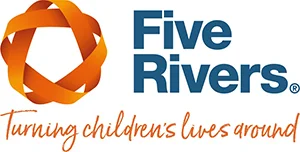Osmington House
- Age Range: 5 - 17 on admission
- Capacity: 1
- Gender: Male or female
- Length of stay: No less than six months
- Location: Dorset
Osmington House provides Attachment and Trauma-Informed Care (ATIC©) to one child or young person aged 5-17 on admission, seamlessly combining care, education, and therapy, to help them overcome the impact of trauma, abuse, and neglect, with the aim of achieving:
- A reduction in risk taking behaviour
- Improved emotional stability
- Improved engagement with education and extra-curricular activities
- A successful transition into group or family settings
The home aims to gain an understanding of what has happened in a child’s life, how they have coped and survived up until now, and how this continues to impact them moving forward. The Osmington House team believe this will support the child in their care to reach their full life potential by providing the necessary tools for growth and change. In these conditions, they believe they can promote resilience, independence, and perseverance.
“The consistent, nurturing care provided has enabled the child to form positive relationships with staff. From his starting point, the child has made good progress in all aspects of his development. The feedback from professionals in unanimously positive. One professional said ‘The staff are always adapting and changing their responses to the child’s emerging needs, so he can progress. They are very good at building his self-esteem.” – Ofsted, 2021.
Educational needs and daily activities are tailored to meet the needs of the individual child, with educational provision being supplied by our alternative provision, 1ACE – a school without walls, with the aim of engaging them as fully as possible while considering any specific requirements, therefore making their goals attainable and in return raising self-esteem and confidence.
“Staff support the child effectively to develop hobbies and interests within the local community. For example, he is encouraged to attend local clubs and they have facilitated him making friends locally. The high level of praise and encouragement the staff give the child for his achievements, no matter how small, helps him to develop confidence and feel good about himself” – Ofsted, 2021
Training for all the home’s adults is therapeutically informed, drawing upon neuroscience research to ensure an understanding of:
- Child Development
- Trauma
- Attachment
- Sensory needs
- Dissociation
- Emotional and behavioural regulation
This training allows the team to learn more about the children’s emotions, behaviours, and experiences. They work hard to role model therapeutic ways of being, as well as directly teaching social, emotional, and behavioural coping skills.
“The therapeutic approach used within the home is well understood by staff and it is having a positive impact on the quality of care they provide. Regular input and guidance from the home’s in-house therapist helps the staff to develop insight and understanding into the child’s specific and complex needs” – Ofsted, 2021.
Adults at the home are empathetic, while maintaining important boundaries to ensure a feeling of safety. Their positive ‘can-do’ attitude does not dismiss a child’s previous experiences; instead, they listen and emotionally ‘hold’ the child so new possibilities become reachable, promoting hope and change. The team continually assess their own work during a fortnightly team meeting and weekly clinical sessions. During these sessions, staff discuss the child’s emotional, physical, and behavioural needs, the progress made, what’s working, what isn’t, and how we adapt to move forward finding a solution.
Adults are committed to building genuine relationships with the children and young people in their care, enabling trust-building, and the new experiences which can arise from this, promoting growth, change and new opportunities. They work with reflective professionalism, whilst building a family culture of love, warmth, honesty, and freedom of speech. They hold the best interests of the child or young person at the heart of their commitment to providing a safe haven for promoting change.
Through the implementation of the ATIC Model©, children and young people have made successful, positive changes to their lives. They have developed new coping skills and started to understand their own past, emotions, and behaviour, attend education full time and have shown a significant reduction in incidents of violent, aggressive, and sexualised behaviours.
Key elements of the model are:
- Consistency
- Boundaries and routine
- Therapy
- Education
- The therapeutic environment
- Psychoeducation
